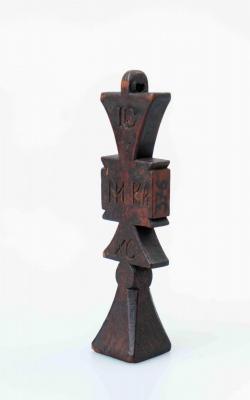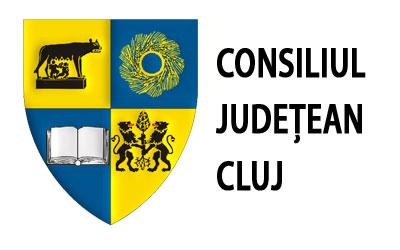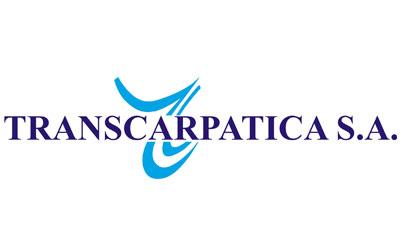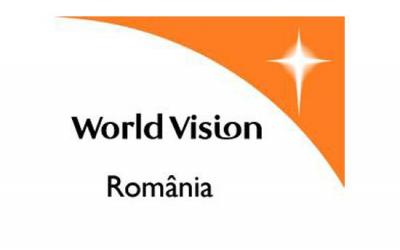The religious seal (“pristolnic”), known by several names - prescurar, prescurnicer, pistornic, pecetar - is a cult object, usually made of wood (but it can also be made of stone or clay) used to imprint prosphora.
“Pristolnic”, a small handmade object, most often carved in the shape of a cross (simple or with different stylizations), has a quadrilateral base on which are inscribed the sacred words IC XC NI KA - meaning “Jesus Christ the Overcomer” or “Jesus Christ overcomes” - which are printed on the prosphora.
Prosphora is a small, round loaf made of leavened dough mashed of pure white wheat flour. Along with wine and water, this liturgical bread is the main material for the preparation of the Holy Communion.
The preparation and baking of bread, as well as the use of religious seals, were attributed only to old women in the village and to nuns in monasteries.
Made by craftsmen or in the household, the religious seals show, by shape and decoration, both the concern for beauty and the skill of those who made them.
The artefact in the image consists of a tall body, with horizontal boundaries (top-bottom) having approximately the same opening as the base, with elongated and concave vertical sides, intersected in the central area by a rectangular surface with depressions towards the ends; at the bottom, the object has the shape of a pyramid trunk with slightly arched edges. The succession of shapes unfolded vertically creates successive symmetrical surfaces on which are embedded the symbol-letters “IC XC NI KA”.
The religious seal with inventory no. 376 is 14.5 cm high, 3.5 cm wide, and it comes from Uricani village, Hunedoara county and it entered the patrimony of the Transylvanian Museum of Ethnography in 1923.
Text: Anca Zahaniciuc – MET museographer
Photo: George Ciupag – MET museographer, photo-video, digital image processing











